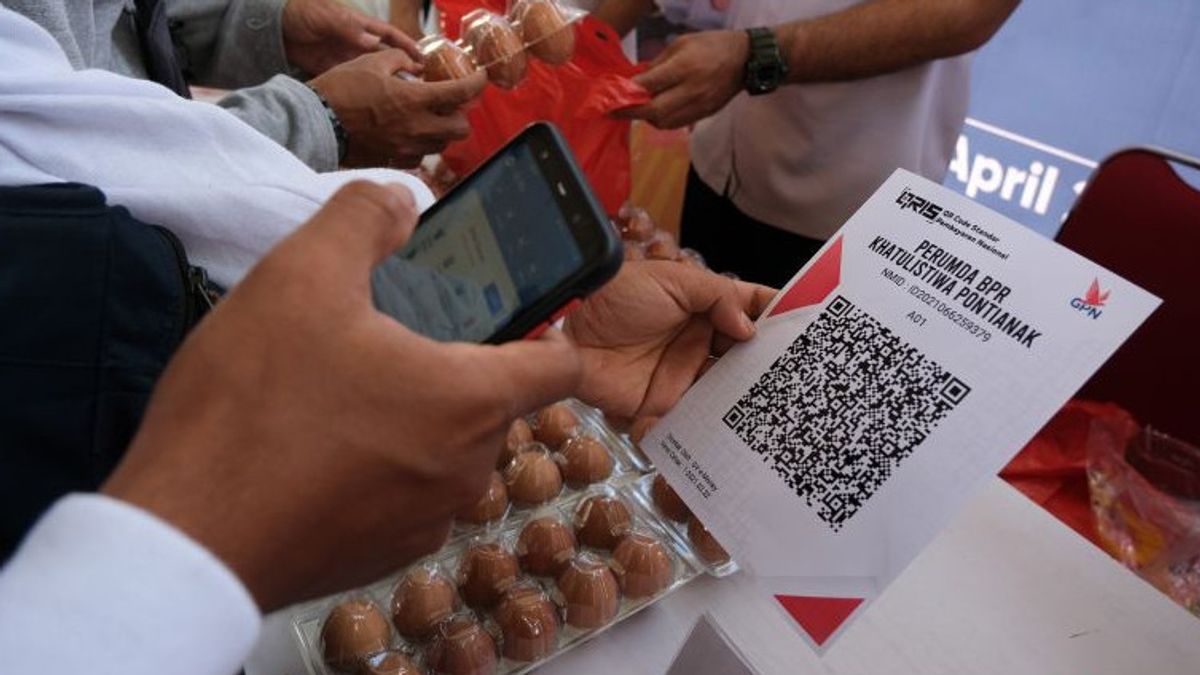
PT Jalin Payment Nusantara (Jalin) noted that it had processed more than 60 million Quick Response Code Indonesian Standard (QRIS) transactions until June 2023.
Director of Commercial Jalin Eko Dedi Rukminto said the QRIS transaction had increased 10 times compared to 2022.
"The significant growth in QRIS transactions in the first semester showed a positive signal that Jalin's performance and members increased rapidly in the first half of 2023," Eko said in his official statement, quoted from Antara, Tuesday, June 27.
Meanwhile, in total, Eko projects that Jalin will be able to serve payment transactions of more than one billion by the end of 2023.
President Director of Jalin Ario Tejo Bayu Aji revealed that the projected total QRIS transactions show good acceptance rates by the public in utilizing payment equipment technology, both from the user and merchant side, so that they are more accustomed to using QRIS as a non-cash payment transaction tool.
As for the regulator, to accelerate digital payments, Bank Indonesia (BI) targets 45 million QRIS users by the end of 2023.
"We are trying to have a role in accelerating the increase in the digital economy in the MSME sector by continuing to encourage the expansion of the acceptance of the use of QRIS through education and communication in digital channels owned by the company," said Ario.
The use of QRIS for users and merchants is able to provide various benefits, especially in terms of merchants, namely being able to check transaction status in real-time, an efficient cost compared to other payment methods, a system that is tested for security standards, and can serve 24-hour transactions.
另请阅读:
In addition, the use of QRIS is able to provide added value for merchants by opening access to digital ecosystems such as e-commerce, financing, and investment.
Another added value is that it can also increase customer base for business expansion, minimize the risk of abuse, and reduce cash handling burdens.
"People are used to making transactions and payments digitally, this is a change in positive behavior in encouraging the digital economy and opening up opportunities for financial inclusion in Indonesia," said Ario.
The English, Chinese, Japanese, Arabic, and French versions are automatically generated by the AI. So there may still be inaccuracies in translating, please always see Indonesian as our main language. (system supported by DigitalSiber.id)














